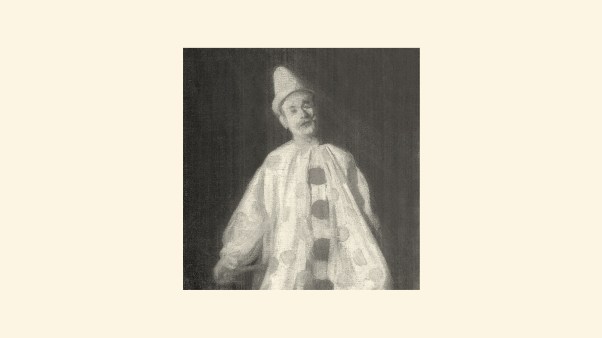Emil Brunner carried neo-orthodoxy to the Anglo-Saxon world and to Asia
The total sinfulness of the natural man does not consist in the fact that all he thinks and believes is false, but in the fact that he is wholly unable to distinguish between the true and the false in his understanding of himself or of life. Therefore one to whom the truth of Christ has been granted has the task of making this distinction, and in so doing he has to explain the meaning of the Christian message. And this is the task of “missionary theology”.…
So Emil Brunner reflected the world import of his theology in The Christian Doctrine of God (Westminster Press, 1950, p. 102), and these well-turned sentences describe what was the standing concern of the influential Swiss theologian until his death at seventy-seven during Holy Week.
Brunner’s body was laid to rest in Zürich, not far from Winterthur, his birthplace, or from the university where he gained international fame as an exponent of “dialectical theology.” Because this view was pioneered by Karl Barth (anticipated by Sören Kierkegaard), Brunner was once known as Barth’s most famous student. But soon he became an independent voice for the “theology of crisis,” as it came to be called, leaving little doubt that his was no mere disgruntled revision of Barth’s main motifs.
Barth and Brunner shared a common emphasis on divine transcendence and initiative, the centrality of Christ, the sovereignty and holiness of God, the sinfulness of man, and justification by faith. Against the long influence of Hegelian philosophy and in support of certain aspects of Reformation theology, both emphasized the self-revealing God and divine-human confrontation. They dedicated themselves not only to denigrating modernism, but also to switching the concern of Protestant theology from religion in general to the disclosure of God in Christ, and to the restoration of religious interest in the uniqueness of the Christian revelation.
Yet Brunner offered a distinctive option within dialectical dogmatics. He was the author of twenty-five volumes in German, fifteen of them translated into English and some into other languages, and of three volumes in English only. His writings, familiarity with English, and wide travelling helped to popularize his views. Lectures in the Anglo-Saxon world and Asia extended the neo-orthodox impact. He had studied in Berlin and New York (where he was the first exchange student at Union Seminary after World War I) as well as in Zürich. Upon his later return to America, he gave strong support to Reinhold Niebuhr’s assault on the liberal illusion of man’s perfectibility. His Princeton appointment in 1938–39 as guest lecturer in the Charles Hodge chair of systematic theology drew fire from evangelicals who viewed as naïve President John Mackay’s assurances that the Swiss theologian set in bold relief “the great verities of the evangelical faith.”
Brunner’s cleavage with Barth emerged as a prominent feature of his teaching. While both rejected the natural theology of Roman Catholicism and held that there is no revelation without personal response to divine confrontation, Brunner insisted on the reality of general revelation. Barth’s unqualified Nein! dramatized their differences. The theological consequences of Brunner’s emphasis on general revelation were far-reaching. Although a pervasive dialectic required an unstable relation of revelation to science, faith to history, and theology to philosophy, Brunner combined dogmatics and apologetics, and was more eager than Barth to relate theological and social concerns. He deplored Barth’s failure to speak out vigorously against Communism.
Brunner’s acceptance of general revelation, on the one hand, and his qualification of miracle (he rejected the Virgin Birth), on the other, brought about a larger interest in him than in Barth among American liberals. Yet in America, in contrast to Europe, modernism viewed neo-orthodoxy as a stimulus to revision rather than a challenge to surrender, not because “reason” was demonstrably on the side of modernism, but because of the instability of neo-orthodoxy. For the dialectical theology that rejected biblical authority, propositional revelation, and objective truth still claimed to escape subjectivism. To some Brunner seemed too much a biblicist and too dogmatic, to others too experiential, to command a real break with liberalism. Yet in the Midwest some theologians still recall a meeting of Chicago-area divinity professors in the early 1940s—their institutions then still dominated mainly by liberals and humanists—when Brunner boldly threw down the gauntlet: “Modernism leads to nihilism; give me time and I can prove it.” Nobody took up his challenge. But thereafter the number of deserters to “Niebuhr’s bandwagon” and to neo-orthodoxy began to multiply.
Despite the frustrating tension between objectivity and subjectivity in Brunner’s dialectic—swiftly exploited by existentialist rivals—he ventured to systematize his positions in a three-volume systematic theology. In this he sought to speak as a Reformed theologian, although he broke with aspects of Reformation theology as fully as with the Scholastic theology that preceded it. Brunner disavowed any “final theology” and asserted that theology must be continually “reformed.” He completed The Christian Doctrine of God and The Christian Doctrine of Creation and Redemption. But because of the difficulty of eschatology, the final volume of his Dogmatics, The Christian Doctrine of the Church, Faith, and the Consummation, was delayed and originally appeared in segments: first, The Misunderstanding of the Church; then Eternal Hope. The latter volume reflected the tragedy that darkened his later years. The loss of his son in a railway accident, he wrote, made “this theological problem a burning issue of personal life.”
He offered his “outline of eschatology” as an effort “to express … without substantially modifying it, what the apostles proclaimed to their day and generation as the great abiding hope,” and also as “the fruit of the wrestling of a simple believing Christian who, assailed by the sorrowful experience of death, has sought the consolation of the Gospel” (Eternal Hope, Westminster Press, 1954, p. 220).
Few evangelical scholars felt that Brunner wholly achieved the high biblical aim set forth in Eternal Hope, but his announced intention could only command evangelical respect. As he put it, he wished to induce “modern humanity, so bankrupt of hope, to turn to the Gospel and its great promise for the future, which offers the only solution to the hopeless position of the world today.” The words recall an early appearance in Princeton University chapel; he had been uncertain about a theme, he said, until “the Holy Spirit touched me on the shoulder and said: ‘Emil, are you ashamed of the Gospel?’ ” Brunner proceeded to preach on the text, “I am not ashamed of the Gospel of Christ.…”
After two years of teaching in Tokyo, health problems forced Brunner’s premature retirement, and a stroke in 1956 greatly curtailed his creative writing.
It is one of the ironies of American theology that the stilling of great voices that long proclaimed God speaks now coincides with the emergence of the vanguard that loudly proclaims God is dead. Between them stands Bultmann and his subjective, existentialist interpretation, which Barth and Brunner were powerless to forestall.
The lesson to be learned is that the loss of scriptural revelation is, in the long run, the loss of the self-revealing God as well. Brunner thought that emphasis on the self-revealing God could sustain a theology linked to the sacred-historical revelational faith of the Bible despite his rejection of divinely revealed truths. But the tide of recent theology has proved him wrong. In his volume A New Apologetics: An Analysis and Appraisal of the Eristic Theology of Emil Brunner (Kampen, Kok, 1955), P. G. Schrotenboer convincingly argues that the dialectical contention that faith has no propositional truth but only a person for its object, not only precludes believing in the Scriptures as Christ and Paul did but also is “a step in the direction of the abandonment of Christianity” (p. 214). The need therefore remains for a theology with profounder loyalties to the Bible. And to this larger opportunity, Brunner’s “missionary theology” points the way with his own epigrammatic remark, never fully pursued, that “the fate of the Bible is the fate of Christianity.”
Trouble In The Churches
“Are the Churches in Trouble?,” an overview of American Christianity in U. S. News and World Report (April 18 issue), notes that disturbing cracks are beginning to appear in the surface of church unity efforts. Americans are not attending church as before, and congregations are split on attempts to unify churches and to “modernize” faith.
The ambivalent outlook is summarized in the views of (1) a Jewish scholar who declares in the current issue of Judaism that the Christian era has come to an end; (2) a Baptist minister in Georgia who warns that “the twentieth century may parallel the fifth … as another ‘dark age’ of negligible religious impact on civilization”; and (3) some clergymen who believe that the present-day religious unrest may issue in “a new Reformation.”
The feature interview with evangelist Billy Graham carried by U. S. News in its April 25 issue combines the warnings of doom with the remnants of hope in a biblical summons to personal religious renewal. Graham does not lose himself in the abstractions of the intellectuals or the aphorisms of the politicians but strikes directly into the bedrock of the human predicament. Few should be surprised that Doubleday has already printed more than 600,000 copies of his World Aflame.
Lawlessness: A Bad Sign
We seem rapidly to be approaching a time like that spoken of in Judges 17:6, when “every man did that which was right in his own eyes.”
Months ago, New York City suffered a needless subway strike that wrought irreparable damage to the economy and life of that city. The brief imprisonment of labor-union officials was, unfortunately, not accompanied by the imposition of heavy fines, which might have been far more effective.
More recently the Brotherhood of Locomotive Firemen conducted an illegal and costly but brief strike that further evidenced a high degree of union irresponsibility. Stiff fines brought to a quick end this obfuscation of the acknowledged need to end featherbedding operations.
In another incident, Dr. Martin Luther King, Jr., admitted that his seizure of a Chicago apartment house was illegal, and sought to justify this “supra-legal” act in terms of a higher legality unknown to American law. However good his intentions, however bad conditions of the apartment house, however culpable the landlord, Dr. King was ill-advised to take the law into his own hands.
Lawlessness is a sign of our times, a bad sign that needs correction by the exercise of greater personal responsibility and by the impartial administration of existing laws.
The Old Money Morality
Public confidence in business ethics has of late been rudely shaken. The public was first dismayed at the ethics of pharmaceutical companies that marketed insufficiently tested dangerous drugs with improper labeling and misleading advertising. The reach for profits apparently overcame concern for public health.
Hard on this came the shocking news that several automobile companies were recalling approximately two million cars because they had been sold with defective wheels, defective steering apparatus, and sticky accelerators that sometimes failed to release completely when the driver lifted his foot. One company alone recalled a million and a half cars, reaching as far back as its 1964 models—which have been on the road a long time. The industry’s irresponsible desire for profits shows—just as reckless driving shows—a defective concern for human life. Verily, the love of money is still the root of much evil.
A Master Of Preaching
This magazine has been singularly favored in its regular contributors, among whom Andrew W. Blackwood, who died in his eighty-fourth year on March 28, was one of the most distinguished. A master teacher of preaching, Dr. Blackwood enriched the whole Church. In many pulpits throughout the land, his former students at Louisville and Princeton seminaries and at Temple University are practicing what he taught them about the art of preparing responsible, biblical sermons. And through his books he instructed a great multitude of ministers.
At the heart of Dr. Blackwood’s life and teaching was unswerving devotion to the evangelical faith and to the Bible. In an essay in our third issue, he described evangelical preaching as “God’s way of meeting the needs of sinful men through the proclamation of his revealed truth, by one of his chosen messengers,” and then went on to say, “Preaching as the proclamation of God’s revealed truth means that the man in the pulpit makes known to others what he has received from God, mainly through the written Word and there through the guidance of the Holy Spirit, in response to the prayer of faith.” Thus he put in a nutshell a prescription for the greater health of the pulpit.
In his own preaching and in his teaching of homiletics, both in the classroom and through his writings, Dr. Blackwood was faithful to this high concept of preaching. We are grateful for his many contributions to our pages and treasure the memory of his loyal friendship.










